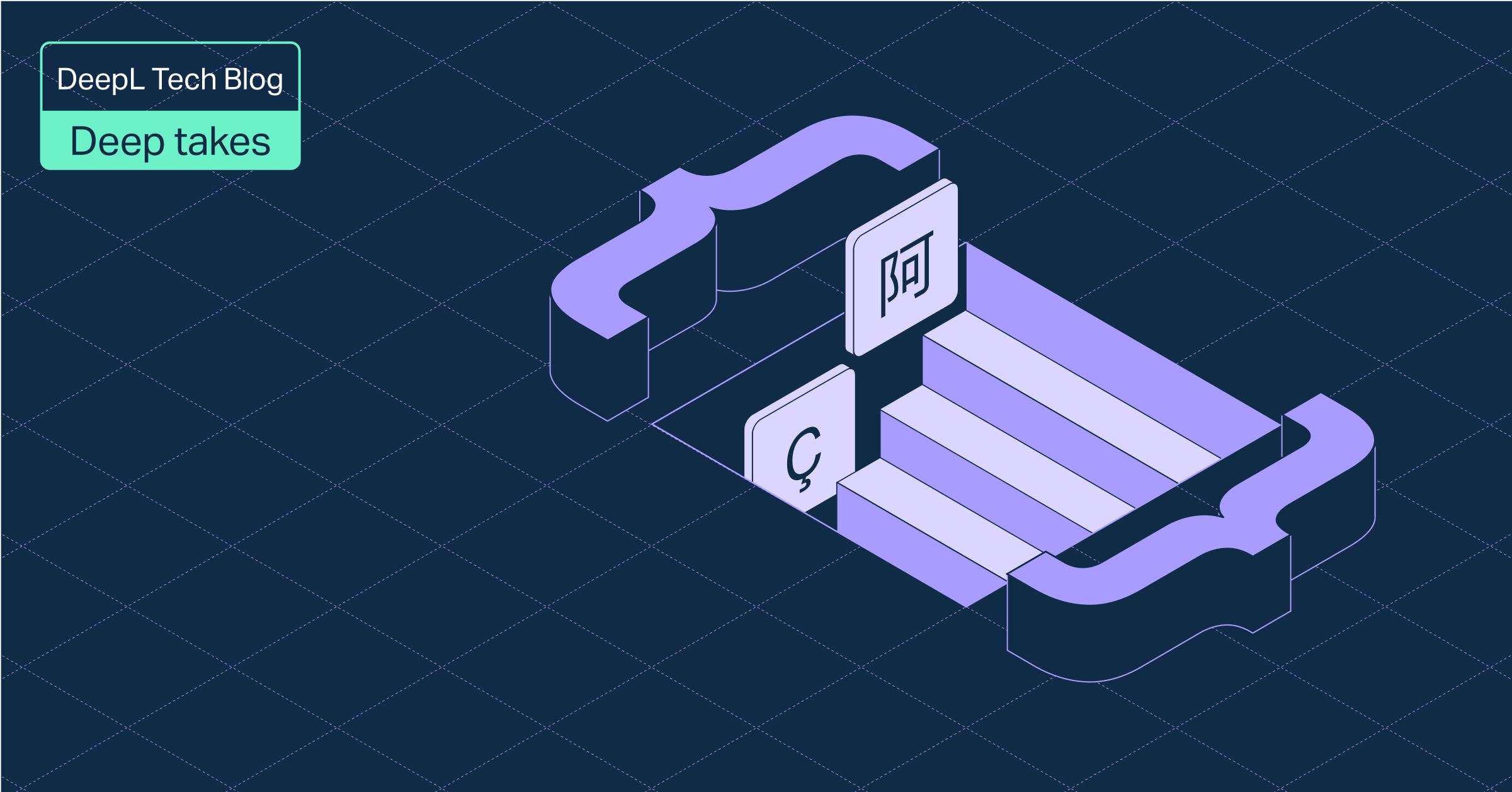DeepL Blog
At DeepL, we power global communication through cutting-edge artificial intelligence solutions, including our core product, the DeepL Translator. Here on the DeepL Blog, we'll keep you updated on the latest developments in AI, our product offerings, and how we enable seamless communication—wherever people do business.
Further information about DeepL and our history can be found on our press page.

How do you deploy an NVIDIA DGX SuperPOD with DGX GB200 systems?
DeepL’s Chief Scientist Stefan Mesken explores the configuration and capabilities of DeepL’s new NVIDIA DGX SuperPOD with DGX GB200 systems, and what these mean for model architecture and synthetic data.

Design systems: definitely not just for designers
Unlock the true potential of your organization with a robust design system. Discover how design tokens and reusable components streamline collaboration, enhance consistency and boost productivity across teams, enabling efficient product development.

A deep dive into MCPs, Part 1: What is MCP, anyway?
Explore Model Context Protocol (MCP) and its impact on AI since its 2024 launch. Learn how MCP enables AI agents to access real-world tools, and get step-by-step guidance on how to build your own MCP server in just 10 lines of code.

How DeepL built better document translation
Discover how DeepL has revolutionized document translation with a seamless drag-and-drop process. Learn about how the team tackled complex challenges and created innovative features to ensure your documents maintain their original layout and formatting.

Committing to safeguard health data with HIPAA
DeepL's compliance with HIPAA enhances data privacy and security for healthcare organizations. Learn about the stringent safeguards in place to protect sensitive health information and the importance of HIPAA in maintaining trust and accountability.

Becoming one of TIME’s 100 Most Influential Companies is a big milestone for DeepL – here’s why
DeepL is honored to be included in the TIME100 list of Most Influential Companies for 2025, alongside other innovation giants like Alibaba Global, On, Nintendo and others.

We’ve added 3 new languages to DeepL, in another blow to language barriers
DeepL now supports Vietnamese and Thai, enhancing collaboration across Asia Pacific. And discover our advanced translation features and document support for Hebrew and Traditional Chinese. Start breaking down language barriers today!

Meet DeepL: embracing inclusion and allyship in the workplace
At DeepL, inclusion is more than a value—it’s lived every day. Legal Ops Specialist Laura North shares her experience as an LGBTQIA+ professional, highlighting the power of allyship, authenticity, and community in the workplace.

Forrester reports: why you need AI-powered localization now
Forrester's trends report ‘Rethinking Localization In The Age Of AI’ makes it clear: businesses need to adopt AI-powered localization now. Find out why.

DeepL on DeepL: How we customize translations with DeepL and Phrase
Discover how to enhance localization workflows with DeepL's Language AI and Phrase TMS. This blog explores best practices for seamless integration, customization options and advanced features that improve translation quality and maintain brand consistency.